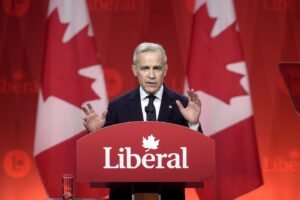President’s rule was officially withdrawn from the Union Territory of Jammu and Kashmir on Sunday. As an elected government will soon make its way there for the first time since 2014. In a significant political landmark after several years of political turbulence. And change in the region.
Background of President’s Rule in Jammu and Kashmir
President’s rule was imposed on Jammu and Kashmir in the place of the PDP-BJP coalition government which collapsed on June 19, 2018. When this political nexus was dissolved, there ensued tremendous political upheavals in the region. Much later in August 2019, the Central Government headed by Prime Minister Narendra Modi. Abrogated the special status given to Jammu and Kashmir. Which had earlier provided the state with a kind of autonomy under Article 370 of the Indian Constitution. In an epoch-making decision, the state was divided into two Union Territories. Namely, Jammu & Kashmir and Ladakh.
President’s rule in Jammu and Kashmir had rendered the region without an elected government for more than five years. Abolition of this rule now opens doors to the formation of a new government. Though, as a Union Territory, the elected government in Jammu and Kashmir will have limited powers. With real authority remaining with the central government.
Historic Elections in Jammu and Kashmir
Elections to the Jammu and Kashmir Legislative Assembly were conducted for the very first time after Article 370 was abrogated. These elections were undertaken in three phases: September 18, September 25, and October 1, 2024. The total number of constituencies of the UT participating in the elections was 90. In total, an outstanding voter turnout of 63.88% was recorded in the overall final tally. The third phase has provided a very high level of 69.69%, which says so much about the participation of the people of the region.
Votes Obtained by Jammu and Kashmir Assembly Elections Recommendations
In the hotly contested election, the National Conference emerged as the largest party with 42 seats in the 90-member assembly. The Congress party in a pre-poll alliance with NC-had managed to win six seats-five. From the Kashmir region and one from the Jammu division. Their alliance was further cemented by the support of four independent MLA-elects. And one lone MLA from the Aam Aadmi Party.
The second most significant party also emerged in BJP, as it won 29 seats. However, in such a general election where the BJP was strong, the NC-Congress alliance had all chances of having a majority with the help of some independents.
Omar Abdullah to be Chief Minister
With the National Conference emerging as the single-largest party. Omar Abdullah is only all set to return as Chief Minister of Jammu and Kashmir. Abdullah was on Thursday unanimously elected as the leader of the NC Legislature Party. Putting him in good stead to take over for his second term as chief minister. His first stint was between 2009 and 2014, the years that Jammu and Kashmir remained a fully-fledged state.
Arriving within hours of the Congress’s decision to extend official support to the National Conference. Abdullah met Lt Governor Manoj Sinha on Tuesday and presented a series of letters pledging support from coalition partners. Including the Congress, CPI(M), AAP, and independents who are elected MLAs. “The swearing-in would likely be on Wednesday,” he admitted but said the transition process probably will take some time because of administrative procedures.
Abdullah spelled out the peculiar nature of the affair: “This is not one elected government replacing another. We are under central rule now as a Union Territory, and the LG must prepare and send documents to the Rashtrapati Bhavan.” This process involves the forwarding of these documents to the Home Ministry, where they would be processed before getting returned, which would then allow for the swearing-in of the new government.
Conclusion
The revocation of the President’s rule in Jammu and Kashmir marks a critical step towards further democratization of the State. With Omar Abdullah all set to take over once again, the Union Territory is all set to install its very first elected government since the revocation of Article 370. This development bodes crucial implications for the region’s politics as well as its relationship with the central government.







Be First to Comment